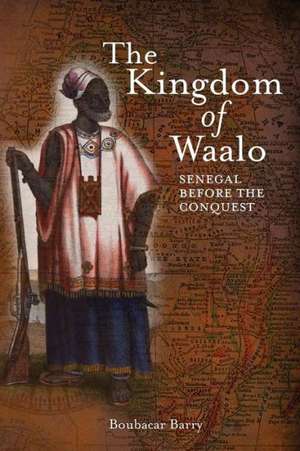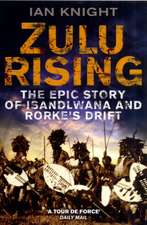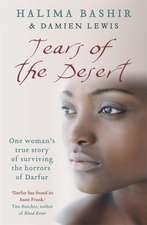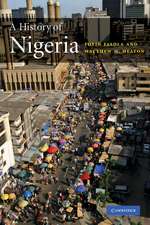The Kingdom of Waalo
Autor Boubacar Barryen Limba Engleză Paperback – 31 aug 2012
Preț: 195.47 lei
Nou
Puncte Express: 293
Preț estimativ în valută:
37.40€ • 40.76$ • 31.52£
37.40€ • 40.76$ • 31.52£
Carte tipărită la comandă
Livrare economică 23 aprilie-07 mai
Preluare comenzi: 021 569.72.76
Specificații
ISBN-13: 9780966020113
ISBN-10: 0966020111
Pagini: 328
Dimensiuni: 152 x 229 x 18 mm
Greutate: 0.44 kg
Editura: Diasporic Africa Press
ISBN-10: 0966020111
Pagini: 328
Dimensiuni: 152 x 229 x 18 mm
Greutate: 0.44 kg
Editura: Diasporic Africa Press
Descriere
This newly translated study is a vital tool in the understanding of Senegal's history, its place in the era of trans-Saharan and trans-Atlantic commerce, and its development into the present. The text should be of value to African studies scholars, anthropologists, and historians of Africa, colonialism, empire, and post-colonialism.








